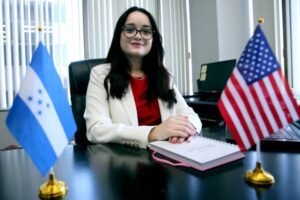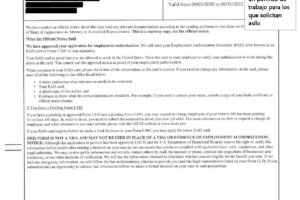You can travel within the United States without papers 2026

Traveling within the United States while undocumented may seem challenging, but being well informed can make the process much easier and safer.
While immigration restrictions and policies can be complex, there are ways to move both by air and land. Here, we provide you with a complete guide to travel with confidence in 2023.
Undocumented Air Travel
Traveling by air in the United States as an undocumented person may raise concerns about necessary documentation and airport procedures.
However, with the right information and proper preparation, it is possible to transit the U.S. skies. Here’s how to do it safely and reliably in 2023.
TSA Accepted Identification
The TSA (Transportation Security Administration) is the authority that establishes identification requirements for all passengers on domestic flights.
Although immigration status may limit the identification options available, there are still documents that undocumented individuals can use to travel by air:
- Foreign Passport: Must be valid. A passport is one of the strongest documents you can present, internationally recognized.
- State Driver’s License: States such as California and New York grant licenses to undocumented drivers, valid for domestic flights, as long as they comply with Real ID requirements as of May 3, 2023.
- State ID Cards: Some states issue photo ID cards to residents regardless of immigration status. Check to see if your state offers this option and if it meets Real ID standards.
- Employment Authorization Card (EAD): Issued by USCIS, it is a valid proof of identity for the TSA.
- Trusted Traveler Cards: Such as NEXUS, SENTRI or FAST, these cards are accepted by the TSA and demonstrate a pre-approved level of security verification.
Preparing for your Domestic Flight
Before arriving at the airport, be sure to:
- Name Matching: Verify that the name on your ticket exactly matches the name on your ID. Any discrepancies can complicate your check-in or security process.
- Device Protection: While you are not required to provide passwords, it is advisable to protect personal information on your electronic devices. Consider using alphanumeric passwords instead of biometric passwords.
- Safety Plan: Designate trusted contacts who know the details of your trip and can act in case of emergency. Make sure they have access to your lawyer or immigration support organizations.
Interaction with TSA
During the security check, remember:
- Right to Privacy: If an agent requests to search your baggage or personal belongings, you have the right to be present during the inspection. If you feel uncomfortable, you can ask to speak to a supervisor.
- Silence is an Option: You are not required to answer questions about your immigration status. If you find yourself in an uncomfortable situation, you can ask to speak to a lawyer.
Frequently Asked Questions
- Do I need a Real ID to fly? As of May 3, 2023, it is required for all domestic flights.
- What if I am arrested? It is always advisable to have the contact of a lawyer specialized in immigration and to know your basic rights.
Knowing what identification is accepted, properly preparing for your flight and understanding your rights will allow you to move with greater confidence and safety on your next air adventure.
- Make sure the name on your ticket exactly matches the name on your ID.
- Protect your electronic devices with secure passwords.
- Develop a safety plan with clear emergency contacts and important documentation accessible.
Ground Transportation: Buses and Trains
Overland travel in the United States can present unique challenges for undocumented persons, especially due to immigration checks by the Border Patrol (CBP) on buses and trains.
While these situations can be intimidating, being informed about your rights can help you navigate these interactions more safely.
Understanding Passenger Rights
- Right to Remain Silent: It is essential to know that you have a constitutional right not to answer questions about your citizenship or immigration status. This applies even if a CBP officer boards your bus or train and starts asking questions.
- Submission of Documentation: If you choose to submit documentation, make sure it is valid and authentic. Submitting false documents can have serious legal consequences. Documents such as a valid foreign passport or an Employment Authorization Card (EAD) are examples of identification you can show.
- Refusal to Consent to a Search: You have the right to refuse a search of your personal belongings if you have not been given a legitimate reason or if a warrant has not been issued. You can clearly state “I do not consent to a search”.
Overland Travel Precautions and Tips
- Be Informed: Before your trip, research routes and check for known checkpoints or areas with a high CBP presence.
- Security Plan: As with air travel, having a security plan is crucial. This includes having an emergency contact, such as an immigration attorney, and making sure someone knows your travel plans.
- Protection of Personal Information: Consider carrying only the necessary personal information with you and electronically protect any sensitive data that may be accessible on mobile devices.
Hawaii or Alaska Specific Trips
- Although Hawaii and Alaska are destinations within the U.S., travel to these states may require flights, which pose their own identification challenges. If you plan to travel to these locations by land or sea, follow the same documentation and safety tips.
Interactions with CBP on Buses and Trains
If you find yourself in a situation where CBP is conducting checks:
- Remain calm and respectful at all times.
- Remember that you are not obligated to answer questions without an attorney present.
- If you feel uncomfortable or if you believe your rights have been violated, consider filing a formal complaint after the interaction.
Traveling overland in the U.S. as an undocumented person carries with it the possibility of facing immigration controls. However, knowing your rights and how to exercise them properly can make the process less stressful and safer. Preparing ahead of time, staying calm during interactions, and having a safety plan are key steps to successful and safe overland travel in 2023.
Driving in the United States
Some states allow foreigners to apply for driver’s licenses, regardless of immigration status. Check with your state DMV to verify your eligibility. If you are stopped while driving:
- Stop the vehicle safely.
- Show your license, registration and insurance upon request.
- You can refuse to have your vehicle searched without your consent.
TPS/DACA beneficiaries may travel to U.S. territories. without Advance Reentry Permit. However, it is vital that your DACA is valid for the duration of your trip and does not expire while you are away from the mainland.
Frequently Asked Questions
- Domestic Flights: A domestic flight is any flight within the U.S., including Hawaii and Alaska.
- REAL ID license: As of May 3, 2023, you need a REAL ID license to board domestic flights.
- TSA/ICE/CBP Interrogations: You are not required to answer questions about your immigration status.
Although traveling while undocumented in the US. comes with its challenges, being prepared and knowing your rights can help you navigate these obstacles with greater confidence.
It is always advisable to seek personalized legal advice before traveling. Stay informed, protect your privacy and plan ahead to ensure that your trip goes as smoothly as possible.






